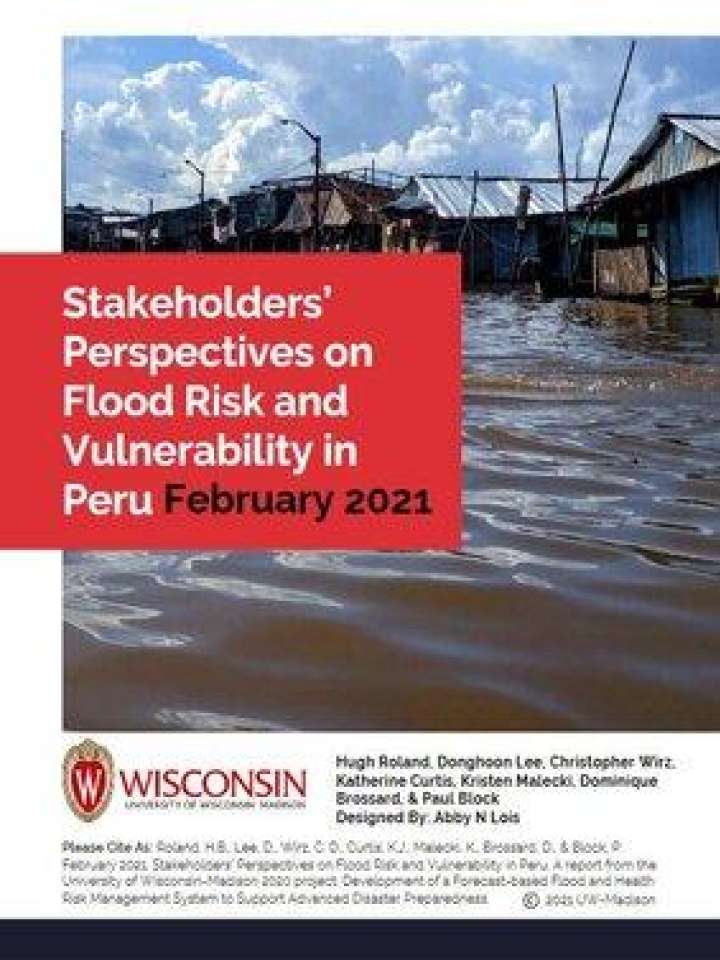Stakeholders’ perspectives on flood risk and vulnerability in Peru
This project is part of a larger interdisciplinary initiative to evaluate the efficacy of season-ahead flood predictions, proactive management strategies, and communication efforts in disaster planning and relief efforts. The research seeks to better understand: 1) how individuals working on flood management in Peru perceive flood-related risk and vulnerability; and 2) how these perceptions impact disaster preparedness and risk communication. This information, alongside the technical tools for hazard management, is critical for developing proactive preparation and response strategies.
In partnership with the Red Cross Climate Center, a team surveyed stakeholders from across Peru, including workers in disaster management, public health, climate science, engineering, forestry, and academia. The authors compared results between two groups of stakeholders involved in different aspects of disaster management: those working in climate modelling and those involved in disaster preparation and response. Since geography frequently shapes political context, we also compared responses from stakeholders working within and outside of Lima, Peru's capital. Of the 150 potential stakeholders solicited, 56 responded, and 36 completed most of the survey online between December 2019 and January 2020.
The findings discussed in this report are based on the perceptions of these respondents and should be interpreted with caution, as this was not a representative sample. They do, however, contribute to a greater understanding of how Peruvian stakeholders might view flood impacts and vulnerability, how stakeholders’ perceptions might shape disaster preparation and response, of where discord in stakeholder perceptions may exist, and of the potential barriers that may limit the implementation of early warning tools.
Explore further
